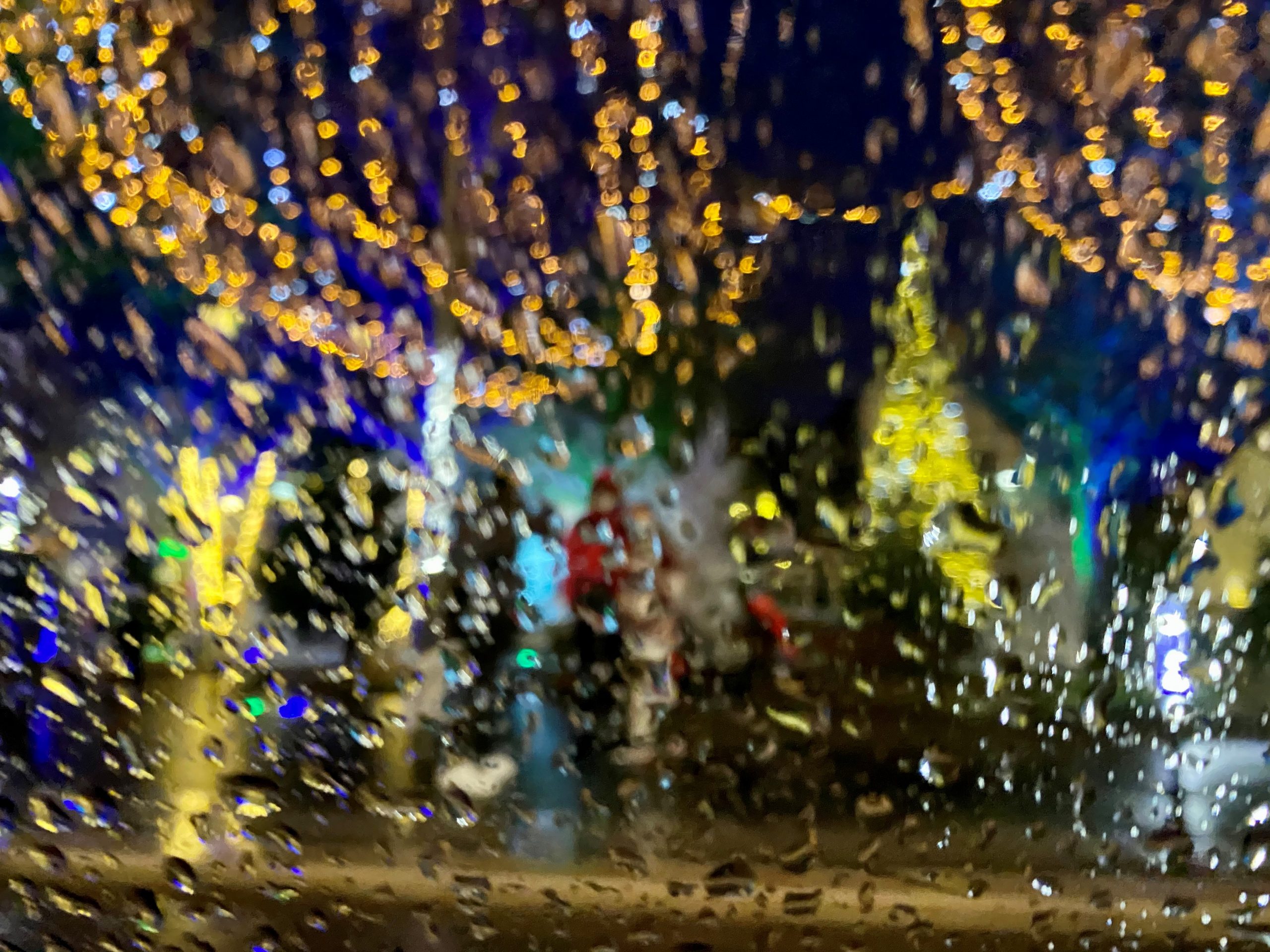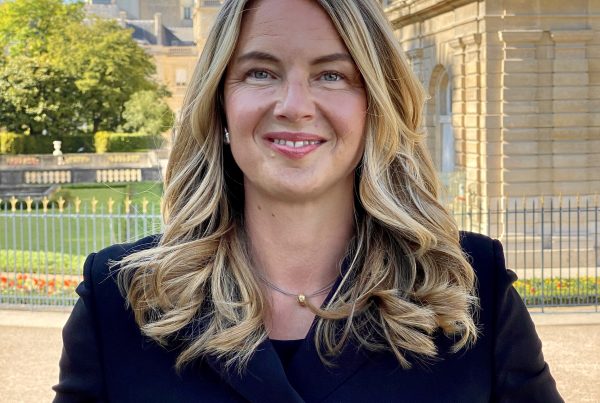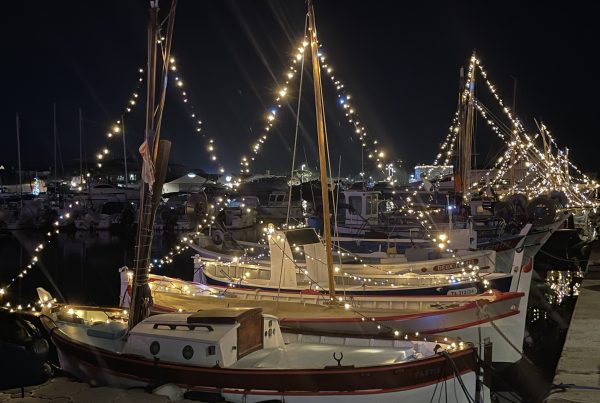Last Christmas I got a kitchen towel as a gift which said “2020 will be the year” – what was meant as a positive encouraging message for good news to come turned into a rather eventful and world-changing year in which rapid response to the unexpected became the rule for many of us.
Would you have sailed with Columbus or rather waited for the review on TripAdvisor first? There was no review or fallback plan for what we experienced this year. We were ripped out of our thought-to-be-safe and secured context and thrown right onto the Santa Maria. We were asked to navigate, quickly realizing that we can control ship and sail, but not wind and waves. But we worked with what we had. And it is in these moments of storm and perpetual crisis that we find out what we are able to accomplish and excel at.
Looking around these days before Christmas 2020 many year-end events have been cancelled and most communication has a bitter-sweet mourning tone – it almost feels like the year is perceived as someone or something that has behaved badly or not lived up to our expectations. If we could, we would just return 2020 to amazon and get reimbursed, no? That would be the perfect world we were used to.
If you’re still watching the news you might realize that there is no good news about 2020. Why is that? Because good news does not sell. A newscast will always highlight how many people died of hunger. It will never state that today far fewer people died of hunger than five years ago. Every day we hear how many new people got infected with Covid-19. We never talk about the fact that fewer people got infected than at the beginning of the pandemic (taking all statistical measures and radically different levels of testing into account) because people now use protective equipment responsibly/ have access to it which was not the case at the beginning of the pandemic. It might be the intention to report these numbers in order to educate people and entice them to behave responsibly. But has this strategy worked? The numbers reflect a less favorable picture of human behavior.
However, instead of “wining” about what was not possible in 2020, shouldn’t we appreciate what became possible in such a short time and what was accomplished? Again, I’d like to thank Axel Dransfeld who gave me the book “Humankind – A hopeful history” by Rutger Bregman. It takes a different and largely neglected positive perspective on humankind. The following excerpt summarizes its main message:
“An old man says to his grandson: “There’s a fight going on inside me. It’s a terrible fight between two wolves. One is evil – angry, greedy, jealous, arrogant, and cowardly. The other is good – peaceful, loving, modest, generous, honest, and trustworthy. These two wolves are also fighting within you, and inside every other person too.” After a moment, the boy asks, “which wolf will win?” The old man smiles: “The one you feed.”
It is in many ways always your choice which wolf you feed. The media and some examples of global “leaders” made people believe that they need to feed the evil wolf to succeed in life. But how can you explain your children and the next generation of leaders that some powerful political leaders can get away with being a bad example while teaching your kids ethical and moral values? Every fundamental decision taken that affects other people’s lives should be driven by two big questions: does it bring solace to the world and/or does it create a future? It is this moment in time that we have the chance to change the image of a business and political role-model that our children and future generations can look up to.
Therefore, we are launching our “be-a-business-role-model” initiative because we believe that we are all personally responsible for becoming more ethical than the society we grew up in. We’d like to give great examples a voice through our new series, so that everybody has a chance to learn from them. Our first guest and resourceful leader is Steven Cuypers, president and CEO of Orfit Industries. In our conversation he highlights in particular the importance of targeted and purposeful communication that has helped him to make a difference this year.
Communication has been a central topic for organizations and people alike as physical and remote ways of communicating shifted due to pandemic necessities. With our mouths covered with masks did we become better listeners? Did we learn to communicate more with our eyes? Any kind of interaction has been driven and supported largely by technology in 2020. While efficiency in many work settings has increased and (unnecessary) travel was avoided, the majority of global leaders agree that “something is missing” and, even worse, that communication has deteriorated. Why is that? What is the issue with those more or less perfectly working devices?
Devices have no needs. No imagination. No will (intention). People do. Usually… until they spend an increasingly large part of their time interacting with devices. Humans can learn to suppress their needs and become similar to the devices they use, functioning perfectly like a well-running machine. But good communication does not only involve hard facts, but also “heart” facts. If physicalness and human interaction are suppressed, the “dialogue” among human beings suffers. In his work “Sidération et résistance” (shock and resistance) Frédéric Worms contemplates rightfully that we need to discuss, speak, and exchange to facilitate change and reflection. Solely device-based and social media driven communication creates a non-debate culture. Consequently, the joy of discovery and creativity die which are desperately needed to reinvent business and life models in this moment in time. It remains to be seen when personal interaction revives and to what extent. It is certain that it is and will be more appreciated and valued. Future communication will be hybrid and a mutual learning process that is new terrain for all of us.
Today, we are launching a second initiative “business-travel-opportunities” to facilitate face-to-face encounters in business and help restoring traveler confidence. As global citizens we are deeply worried about the decline in business travel – some of it will never rebound and should not for environmental reasons. But most business travel is deferred when it actually could take place, taking all safety precautions into account. Why is this so important? Because business travelers pay the fundamental share of modes of transportation. If they do not travel (or believe they cannot travel), many transportation companies will cease to exist, and this will also mean that tourism will not have access to modes of transportation in the future. Most importantly, many projects are postponed because in-person meetings are not taking place which slows down the economic recovery. Therefore, we have compiled requirements and regulations for business travel between the majority of Western European countries and North America and offer our insights to you free-of-charge. Feel free to share the link!
This year I’m first and foremost thankful for everything we have learned and were able to do and how people and organizations were able to respond in short term, often altruistically, to a threat that wiped out lives and livelihoods around the globe. Since the beginning of the pandemic, we saw organizations, countries, and even bureaucracies doing extraordinary things. Many human beings grew beyond their capabilities, being creative, determined, and – just – human in their jobs and lives. They made a difference through their personal engagement and individual growth for others.
Talking about growth: it is maybe the first time in years that I hear clients being thankful they’re closing the year with almost the same revenues as last year. No more x-percent benchmarking at the year-end and the end of performance-based bonuses? Are we realizing that endless growth in a limited world is not possible?
At the beginning of the pandemic people were talking about the “normal” state of the world as a reference point to get back to. But was the B.C. (before Corona) status just a normal one? I believe we were living extraordinary lives and had gotten used to it. Humbleness had vanished and everything seemed possible. Re-reading my X-mas perspective from 2019 I already mentioned that “In a world of limited resources, we have to re-learn that we might not get everything we wish for.” This happened faster than I could have imagined unfortunately.
The world has not entirely changed, but considerably enough to make us think how we live, work and enjoy in the future. In his song “above the clouds” Reinhard Mey talks about the bird’s-eye perspective from an airplane looking down onto the world and states that “everything that seemed to be important to us is suddenly void and small.” It is this distant perspective that provides maybe a relief, but also a reconsideration of our priorities and how they relate to those of others. It is an opportunity for us to step back and ask ourselves if we’re leading the kind of lives that we really want to live. It is also the chance to reconsider where people fit in our priority list and whether there’s a gap between our stated priorities and our lived priorities. “Zooming out” of our own little world to see the entire world and the things that matter to others might be a first step.
From my point of view, the biggest struggle in managing the pandemic in Westernized societies is the excess of individualism and the loss of civic responsibility that have developed over the last decade. Do we really need an ad that states, “I wear a mask, so I can soon get back to my regular bar” or “I wear a mask, so I can soon travel to Mallorca again” (Germans’ favorite party and vacation island)? I’m embarrassed by this childlike persuasion strategy. Wouldn’t it be self-evident to take responsibility beyond personal self-interest and wear a mask not only for oneself, but to protect others? The own freedom ends where that of another person begins said Emmanuel Kant rightly. Wearing a mask is a sign. Of respect.
So, what’s next? Acceptance of the status quo is the first step to make a change and move forward. I was happy to help organizations and individuals with a range of services this year that address current market developments and trends. I’d like to keep the advertising short here as you know that my year-end-letter is always concerned with the larger state of the world. But feel free to check out our newly launched website for more information. And please be in touch with any requests or inquiries. I’m always happy to hear from you.
If I’m asked what we have learned in 2020 and carry on in 2021, it is that “health rules” after many years of cutting healthcare budgets. We have reinvented (lean) business models around healthcare and political priority setting has made economic recovery dependent on a healthy population. This represents an enormous shift in agenda setting and will have lasting effects for years to come.
If you ask me when this pandemic will end the honest answer is “I don’t know”. Too much depends on “winds and waves”. But it is clear that to manage “ship and sail” well, we have to be agile like a weasel, flexible like a chameleon and wise like an elephant. I can only wish “bon courage”, chance, and having committed and creative people in close connection. As always, we are here to help you if we can.
Take care. Be safe. Enjoy what you can in this holiday season. And please feed the good wolf inside of you.
Stay tuned @KatharinaJanus and @HCMatColumbia!

Prof. Dr. Katharina Janus
Founder and Managing Director of the Center for Healthcare Management, Paris, France and at Columbia University, New York, NY, USA
President and CEO, ENJOY STRATEGY, Europe & US



